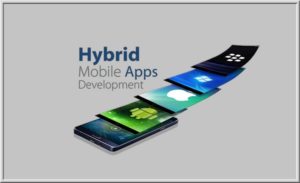
Hybrid or native – it is an internal choice for developers, whether they just start doing their business or are occupied with it for a while. In the article, we state that a hybrid mobile application has more advantages above native app development. The last few decades enterprises work harder and harder to get closer to a consumer and mobile user, hire Ionic developers for hybrid development; as we become more technologically abundant there are more ways to create a lot of new products.
Developers want their applications to be as available as possible, native app development is good to work with for a mobile app development company, but does it pay off as hybrid one? Initially with appearing a mobile app development industry creating an app for one platform was preferable, but with a growth of mobile popularity and app usage developers found out more benefits for contributing their time into hybrid app development as well. Such key benefits look like:
1. Reduced mobile app development cost

We placed this benefit on the top as what can be more important than the affordable cost of an app development? The reason of reduced cost is once written code, while native apps require development for the separate platform. There are plenty of libraries and development frameworks that accelerate the development process, they also reduce development cost, saving not only money but time. Hybrid app development lets a task to be done sooner and faster than its competitive platform does.
2. Fast Deployment
Such a system as MVP (The Minimum Viable Product) requires the fast deployment of necessary functional solutions in order to reach out the market first, which gives more benefits over competitors. Presenting your product to a consumer may play a big role in its success. It is reported, that globally mobile users check their phones more than 80 billion times a day. Make your app be one of the reasons for checking a phone by a customer. In a case, you want your mobile application to be first on the App Store or Play Market as fast as possible, consider using cross-platform mobile app development.
3. Improved User Experience
Expectations of users are expanding every day, they want an app to be responsive, affordable and qualitative. All these ideas are implemented in hybrid apps, “tap” – and you see an app in your browser, “tap-tap” and here we have an application for any of your devices, consistent UI, there is nothing better to improve the user experience. It displays data faster and allows to experience the same UE as on a tablet as on a mobile. This mobile app user interface from hybrid development satisfies your target audience with high-definition graphics and give the opportunity to experience a consistent UI in a result.

4. Offline Usage
Web applications lack one really important thing – an offline support, and that is what limits them. Guess what can provide you a hybrid application development? Apps store API of the device for saving offline data, which helps to load the app rapidly next time. It stores a part of information for reaching it in the case of a low or bad connection. In a competition native vs hybrid app, the last one scores its points for this primary reason – providing accessibility without glitches. By the way, it also helps to save money off customers, which they could plan to spend on data.
5. Project Management Methodologies
A potentially successful project should be planned and thoroughly organized. There are a lot of methodologies, that great variety of development teams apply in app development. Some of them use consistent approach; some take all the work at once dividing it into milestones. The most known are Agile and Waterfall methodologies. The core of Agile is the visible result of a new project, as the provided milestones and requirements can be changed in the process of development.
A Waterfall is more restrictive, as this method has a set plan of work, which can be overthought in the process of work. Every step is done one by one, and cannot be broken or changed.
A key benefit of hybrid app development is a possibility to use both of these methodologies at one time. An Agile project is hard to predict the completion of it, while Waterfall is not a panacea for any project, that should be done with hybrid development. Here comes a combination of them: it allows developers to plan before starting to work on the project, and divides the development cycle into short-term milestones. Hybrid can endure requirements and deliver products in stages.
Bottom line
The hybrid application will serve for a great variety of devices on different platforms. This imperative tool for any project and company penetrate the market quickly with the ability to stay competitive. Such giant as Google, Uber, and Instagram use all the benefits of hybrid mobile app development, that shows a profitability of capitalizing this type of development.

